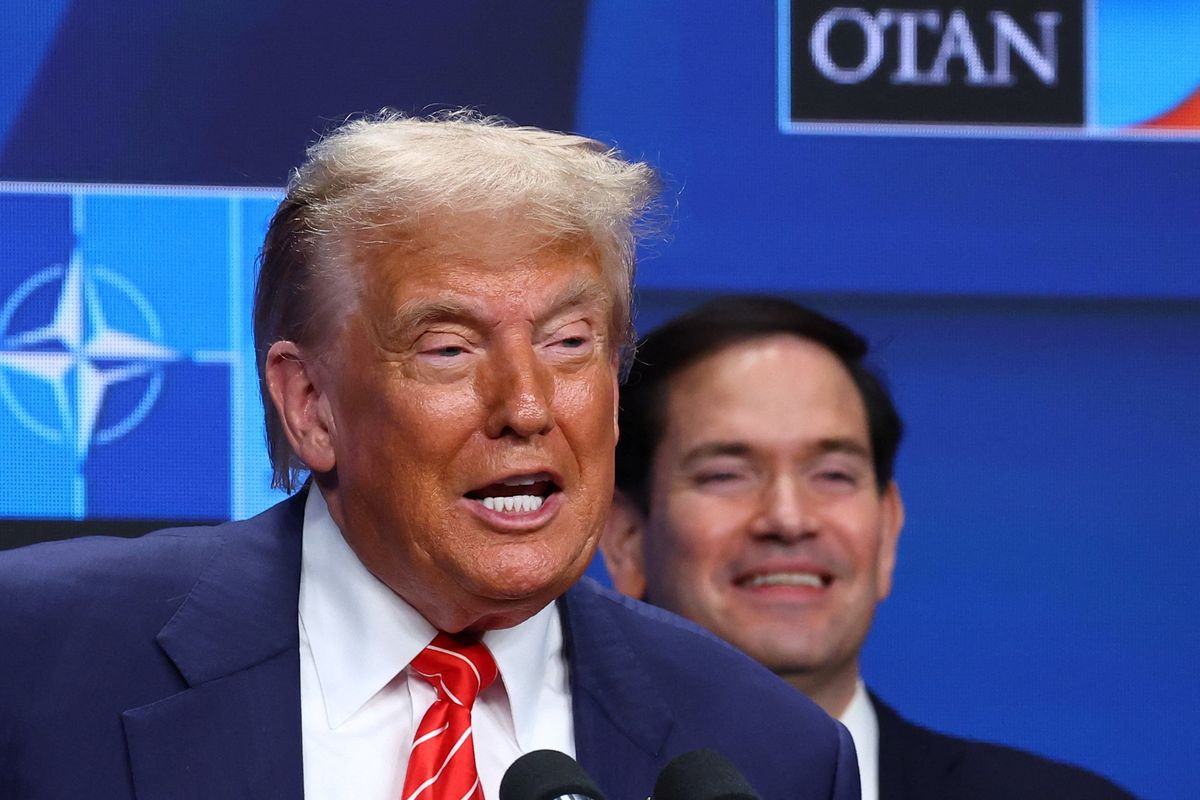
The Pentagon recently launched a surprise review of a security pact with Australia and the United Kingdom, catching key officials across the U.S. government off guard.
The review, spearheaded by Pentagon policy chief Elbridge Colby, was designed to see if a nuclear submarine agreement with the key U.S. allies aligned with President Donald Trump's "America First" agenda.
However, officials at the State Department, National Security Council, and White House weren't informed in advance, nor were their counterparts in Canberra and London.
And, according to Politico, it illustrates a descent into turf wars, rogue actors and dysfunction that’s plagued national security policymaking under Trump and Secretary of State Marco Rubio, who became acting national security adviser in May.
The situation has gotten so bad, one insider familiar with the submarine review said, “It’s Game of Thrones politics over there.”
Since taking over the NSC, Rubio has dramatically downsized the staff from more than 200 to fewer than 100 people — and fundamentally altered its workings.
The traditional NSC serves as a nerve center, coordinating policy across government agencies to ensure unified messaging and action. Under Rubio's leadership, this process has become severely damaged, Politico reported.
Important meetings aren't being held, career staffers operate in the dark about expectations, and power vacuums are emerging that opportunistic officials exploit, Politico reported.
The interagency structure typically includes three levels: the Principals Committee (Cabinet-level officials), Deputies Committee (deputy-level officials), and Policy Coordination Committees (PCCs) where assistant secretaries and senior directors hash out detailed policy issues. Under Trump, Rubio or his deputy must approve all PCC meetings, which only occur if topics align with presidential priorities.
While the White House argues these changes promote Trump's priorities while excluding potentially leaky career staffers, critics warn of serious consequences. PCCs traditionally handle complex issues below the president's radar, preventing small crises from escalating. They also serve as diplomatic tools, showing U.S. attention to countries that might otherwise turn to rivals like China.
By limiting meetings to presidential priorities only, vast amounts of diplomacy go undone, innovative ideas are ignored, and minor problems fester into major crises, Politico wrote.
National security professionals worry that issues like Ukraine are being sidelined, while key staffers are excluded from crucial conversations with foreign leaders.
Former Biden administration officials expressed shock the unilateral submarine review.
White House aides would have "lost it" if a similar situation occurred during their tenure, they told Politico.




